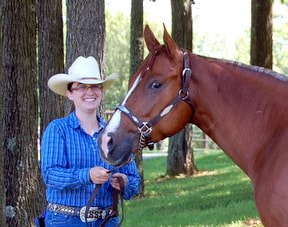Poll Recap: Public or Private Lands for Horseback Riding?
Where you do you most of your horseback riding? We posed this question to our readers in last week’s online poll. More than 800 people responded, and we’ve tallied the results!
Of the 825 respondents, 370 (45%) said they do the majority of their horseback riding on their own private land or on the farm where they board their horses. Another 114 respondents (14%) said they ride on private land that doesn’t belong to them, and 105 individuals (13%) ride on public land that belongs to the state they live in. An additional 96 respondents (12%) said they mainly ride on public land belonging to the federal government, and 89 people (11%) do most of their riding on county and city parks belonging to their local jurisdiction. Only 3 respondents (<1%) ride on tribal lands, and 17 people (2%) were not sure who owns the land they ride on. The remaining 31 respondents (4%) do not ride horses.
Poll Results

Photo: TheHorse
Create a free account with TheHorse.com to view this content.
TheHorse.com is home to thousands of free articles about horse health care. In order to access some of our exclusive free content, you must be signed into TheHorse.com.
Start your free account today!
Already have an account?
and continue reading.

Written by:
Jennifer Whittle
Related Articles
Stay on top of the most recent Horse Health news with



















